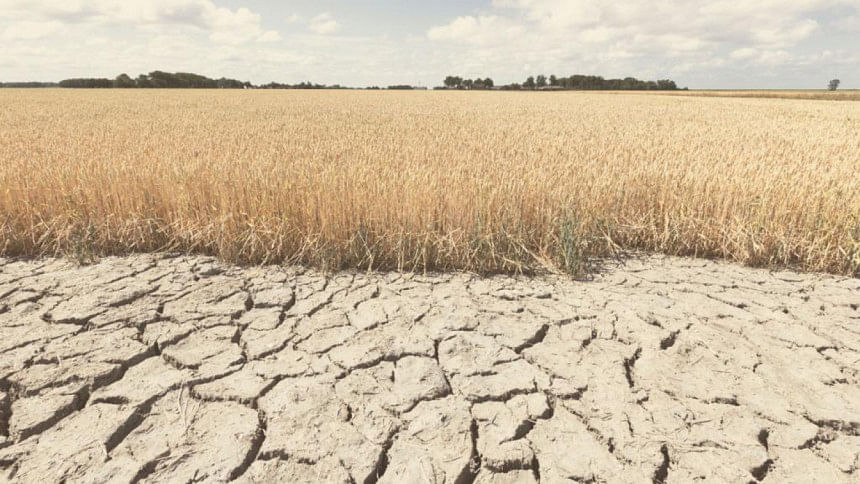Adopt sustainable technologies in agriculture sector

Although climate risks in agricultural production have increased over the years, Bangladesh could not adopt sustainable technologies in rural areas owing to a lack of proper initiatives, analysts said.
As a result, farmers across the country are incurring huge losses brought on by calamities such as floods, droughts, cyclones, uneven rainfall, extreme heat, increased salinity and water-logging, they added.
"Being a low-lying deltaic plain, Bangladesh is the most vulnerable country in the world in terms of the number of people affected with respect to sea level rise," said MG Neogi, deputy project leader of the University of Western Australia.
He said climate risks to agricultural production were expected to increase in coming decades, particularly in low-income countries where adaptive capacity is weaker.
"Salinity has been gradually engulfing new areas in the coastal regions of the country."
Neogi made the remarks at a seminar titled "Climate Change Adaptation, Agricultural Innovation and Resilience", organised by Rangpur Dinajpur Rural Service (RDRS) Bangladesh at the Radisson Blu Water Garden in Dhaka.
He said farmers in the southern region used to cultivate boro rice and other winter crops in the dry season in the past and received a very good yield and income.
"Nowadays, after failing to get optimum yield again and again due to increased salinity and a severe scarcity of salt-free irrigation water, they stopped cultivating boro rice and other winter crops.
"As a result, about 4.39 lakh hectares of land in the coastal region remain as fallow lands during the dry season," said Neogi, who is also the winner of Swadhinata padak.
In the last 35 years, salinity has increased by 26 percent, heavily impacting the agriculture sector, according to data from the Soil Resource Development Institute (SRDI).
Shykh Seraj, director and head of news of Channel i, said Bangladesh could not popularise technologies such as biogas, alternate wetting and drying (AWD) and sack gardening.
"Many research-based technologies are still confined to paper; the government could not implement them in the fields," he said.
About spreading the use of biogas technology, he said: "It has not spread to rural areas due to a lack of funds from the farmers' side.
"It is high time to adopt and spread new technologies to save the small farmers, especially at a time when many big companies are entering the agriculture sector."
Atiur Rahman, former governor of the Bangladesh Bank, said solar irrigation pumps could be a saviour for farmers as well as the environment by reducing the use of diesel.
He said the government is now giving up to 70 percent subsidy for agriculture mechanisation, but authorities should be encouraged to set up more irrigation pumps.
He urged the government and NGOs to adopt sustainable technologies in the southern areas through partnership programmes.
Qazi Kholiquzzaman Ahmad, chairman of the Dhaka School of Economics, urged the integration of existing policies in different ministries to increase adaptation capacity in the country.

 For all latest news, follow The Daily Star's Google News channel.
For all latest news, follow The Daily Star's Google News channel. 



Comments